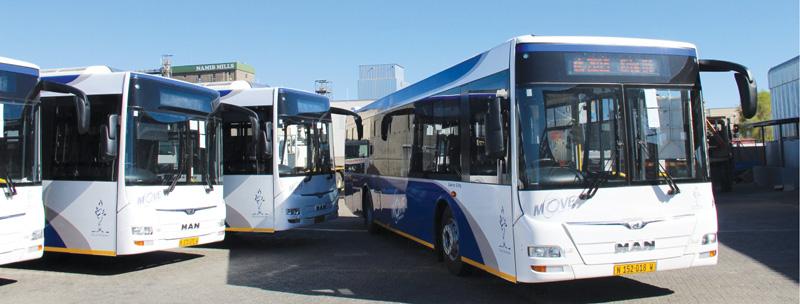
Effectiveness of the relaunched SME Economic Recovery Loan Scheme

By Josef Kefas Sheehama.
The Bank of Namibia and the Ministry of Finance and Public Enterprises have relaunched the SME Economic Recovery Loan Scheme on 02 February 2023 with a share capital of N$500 million. The first scheme was launched in November 2020, but failed due to stringent qualifying criteria and the lack of well-presented information across the fourteen regions.
The relaunched SME Economic Recovery Loan Scheme is a revamp of the earlier loan scheme and is designed to provide small and medium-sized businesses access to government guaranteed loans to help their businesses recover from the impact of COVID-19, amongst other things.
We should understand that the lockdowns have reduced economic activity significantly. Supply chain disruption has caused SMEs to face a longer cash conversion cycle. SMEs also need to continue paying recurrent costs for its business continuity, such as office rental and salaries to their employees. As a result, SMEs are incurring losses and delaying debt payments. Many SMEs were forced to shut down with the consequence that unemployment increased.
For the SMEs that survived, their immediate financial needs have been increasing sharply to minimize the negative impacts of business disruptions and to retain employment as well as take precautionary measures for the uncertainty. SMEs provide some form of employment and incomes to 160,000 people, representing approximately one-third of the nation’s workforce. In terms of full-time employment, this sector currently employs about 60,000 people.
In Namibia, the majority of SMEs are mainly found in the retailing sector selling foodstuffs and household products with no real value addition in most cases. Therefore, the contribution, which small businesses can make to national economy and wealth creation need to be recognized by the government from the beginning and be considered as part and parcel of the economic development process. Thus, the need for a simplified business registration process that can lead to an increase in the number of businesses registered in Namibia cannot be over-emphasized.
As an Independent Economic and Business Researcher, I want to take a moment and thank the Bank of Namibia and the Ministry of Finance and Public Enterprises for a great job by re-launching the SME Economic Recovery Loan Scheme.
SMEs can apply through their banks such as Bank Windhoek, First National Bank, Standard Bank and Nedbank. The purpose of the scheme is to enable banks’ ability to provide cheaper credit to SMEs so they can recover, restore and invest in the future. The banks will facilitate loans from N$50,000 to N$10,000,000 based on the SME’s balance sheet and subject to the banking institution’s credit assessment, according to the Bank of Namibia.
The loan amount is linked to the current prime lending rate which is 10.5%, however, the Bank of Namibia proposed prime lending rate minus 50 basis points. For example, prime minus 0.5% at today’s rates means 10.5% – 0.5% – an effective rate of 10% interest. If the repo rate goes up by 0.5% and the banks increase prime by 0.5% as well, that loan would still be prime minus 0.5% but would have an effective rate of 10.5% (11% – 0.5%).
The SME Economic Recovery Loan Scheme focuses on businesses with a turnover of not more than N$60,000,000 per annum. All financial institutions around the world can only provide funding to registered and well directed businesses that are to return the borrowed money and realize their intended goals and objectives. SME owners need to keep proper financial information. Your bank will not extend a facility if you cannot provide Annual Financial Statements and a Cash Flow Projection. It is impossible to run a business without recording financial information. Good financial information allows one to get a clearer picture of a company.
Moreover, it is important for all governors, councillors, and mayors to come to the party in all the regions. They are not elected to be office-bound. Innovation, creativity and agility need to be cherished and celebrated. They need to provide SMEs with valuable expertise and guidance, and help businesses develop leadership skills and build strong teams. Equally, mentorship and coaching programmes can also foster innovation and entrepreneurship, contributing to a dynamic business environment.
Against this background, there is a need for an SME information Centre to be established across all fourteen regions specifically to provide information to SMEs on developments relating to market movements, latest developments and to assist SME owners to link to the service providers at affordable rates. Thus, it is crucial that regional leaders integrate the informal economy issues into the overall youth development issues rather than isolating the youth and the informal economy.
Across all regions, SMEs do more than create employment. They are also engines of economic growth and social development. The SMEs contribute more than 12% of GDP, and some global estimates put this figure as high as 70%. This contribution varies across sectors, and is particularly high in the service industry, where SMEs account for 60%. SMEs are a vital lifeline in a country, as they represent the grassroots that keep the local economy going by encouraging growth, employment and income.
In conclusion, SMEs are a vital engine in the Namibian economy. They drive growth, create employment and spearhead innovation. They can leverage their agility to design and incubate new technologies and business models to build a better future.
For SMEs to become large corporations, they needs to continue on the path to growth and prosperity. It is imperative therefore that efforts to protect SMEs move with speed and decisiveness not only to cushion the worst of the impacts of the crisis on livelihoods but to help ensure a swifter recovery for the broader economy.











































